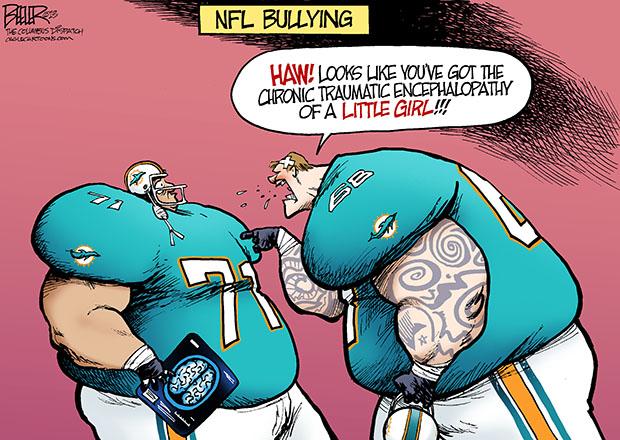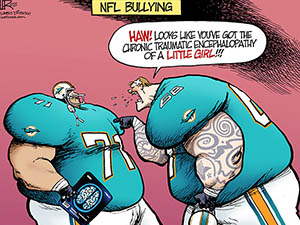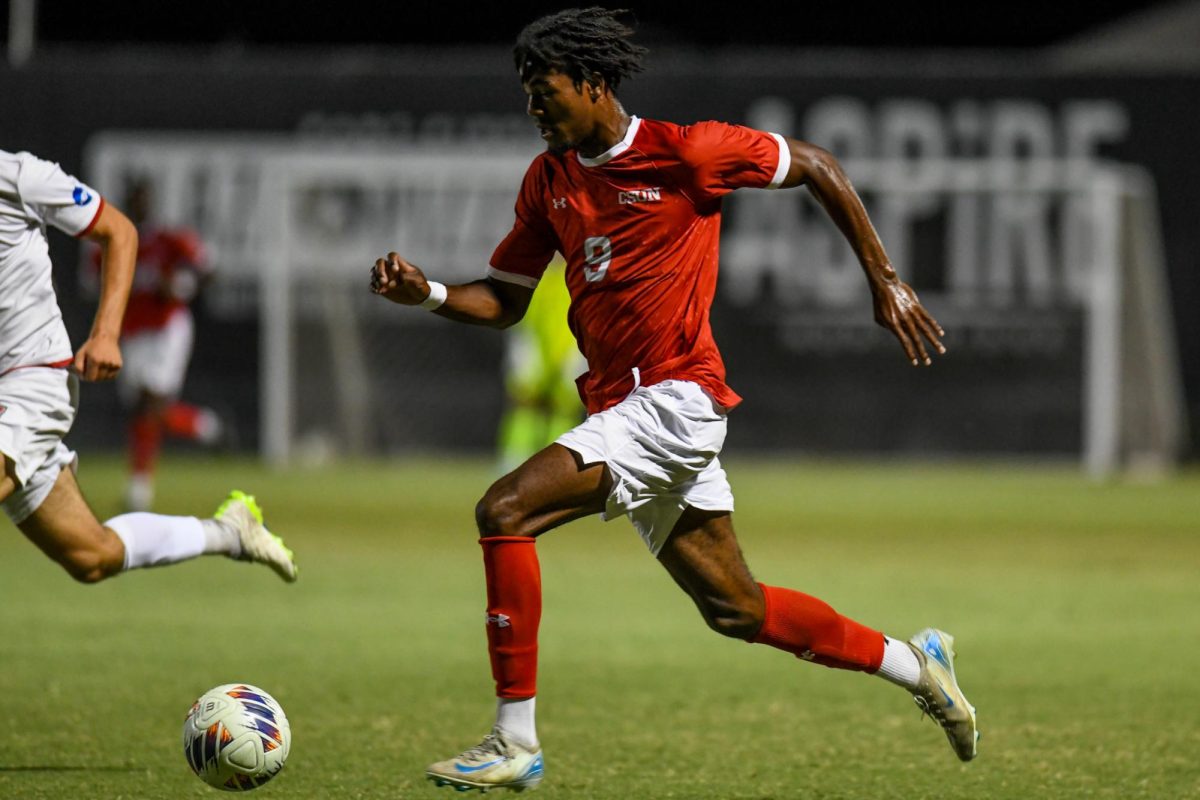
*Chronic Traumatic Encephalopathy (CTE) is degenerative brain disease caused by repeated concussions.
The NFL has recently been investigating a scandal involving Miami Dolphins players Jonathan Martin and Richie Incognito. Incognito, who is a white offensive lineman for the Miami Dolphins, sent Martin, black ex-offensive tackle for the Miami Dolphins, a verbally abusive voicemail and repeated insults/racial slurs in the past year. Martin was a rookie and was therefore a target for the traditional hazing that occurs on NFL teams.
In a society so obsessed by race and what is politically correct, it is difficult to choose a right side to the Martin-Incognito scandal. Objectively speaking, the voicemail is horrendous with inappropriate threats and slurs that any regular member of society would report, especially if coming from someone in the workplace.
The question now is should this be acceptable behavior in 2013 even if it is an aggressive, haze-heavy profession? One thing is certain: the scandal of this event will make players think twice before using racial slurs in and outside the locker room.
Football is a sport that requires aggressive behavior. As spectators, we want to see the violence and ruthlessness of the players on the field and expect them to abide and act as regular citizens off the field.
What we see are the lights, the glory and the pride when our favorite teams win but none of the hardship, abuse and training that players must go through. These are factors that we must take into consideration before dismissing the scandal as an evident racist that took it too far.
The NFL has long seen bullying and hazing as part of its culture. Players often discuss race relations openly and honestly in the locker room. Being a part of these teams requires, and often forces, integration and acceptance of different races.
Even if this verbal hazing and “playful racism” has been happening for decades, it does not make it justifiably acceptable. Men in particular have, since their youth, been encouraged to hide their emotions and have tough skin. In such a testosterone-heavy sporting environment this notion is only emphasized further.
If anything, going against the grain of this so-called “code of secrecy” takes more strength than complying with it.
It’s difficult to expect players to be the most aggressive and brutal they can be on field and then flip their mindset 180 degrees once they’ve left the field. Martin was experiencing this torment for over a year and is now receiving counseling for it. Whether or not it is “normal,” or with humorous intent, is irrelevant to the fact that Martin was clearly not comfortable with this treatment.
Former NFL defensive end Ryan Riddle explains that Martin shares the same personality type that he does, in that he is more quiet/introverted, and not particularly comfortable with being the target of hazing.
“(Football is) a sport designed for one man to bully another. We need to consider the possibility that Martin possesses a character and personality type that does not fit in the harsh world of the NFL,” Riddle said in an article for the Bleacher Report.
Incognito, now labeled as a racist and a bigot, and Martin, now viewed by many NFL players as a sell-out and weak, will both have a difficult time making it back into the NFL if they so choose.
Hopefully the exposure of the extent of the hazing that goes on will bring about change within the locker room. There should be limits of how personal and insulting the players can get with each other, especially if it is racist and clearly mentally damaging to the player.
Much like those in the military, the violent behavior required by these men should be reason enough to have them all counseled and checked. Bullying on the field is expected and condoned. Off the field, it should be monitored and these players should have an outlet, someone to speak to if they are struggling to fit in or are being victimized to the point of quitting.
It is 2013, racial slurs are not funny and should not be used at all. This does not mean that football culture should change altogether but hopefully this scandal will, at the very least, bring about intervention of psychiatric professionals and care on the coaches’ part for the players’ mental well-being. Ultimately, this will aid their overall performance and interactions on and off the field.






